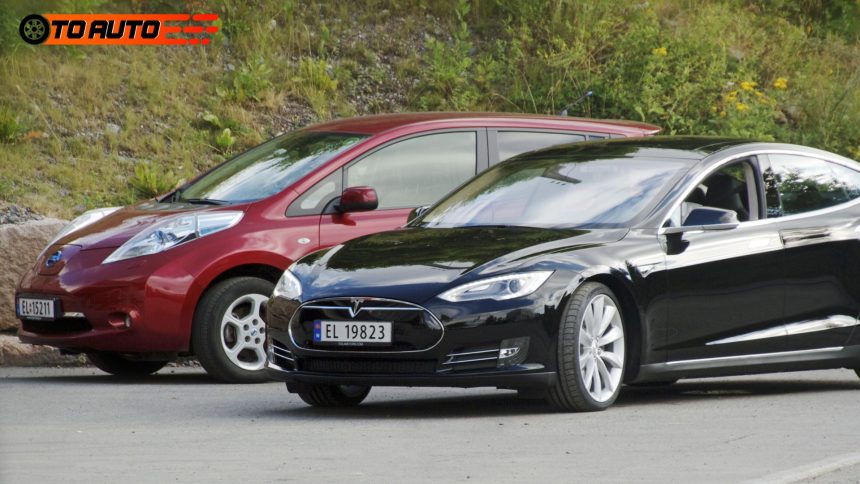As the demand for eco-friendly vehicles continues to grow, many consumers are turning to used electric cars as a more affordable and sustainable option. The pre-owned market for electric vehicles (EVs) offers a wide range of choices, from compact city cars to luxury models, allowing buyers to find a vehicle that suits their needs and budget. This article explores the benefits and challenges of purchasing used EVs, offering insights on how to make the most informed decision when navigating the pre-owned market.
Why Consider Used Electric Cars?
Purchasing a used EVs can be a smart financial move for several reasons. First, the depreciation rate for electric vehicles is generally higher than that of traditional gasoline cars. This means that used electric cars can be significantly less expensive than new ones, providing an opportunity to own an eco-friendly vehicle at a fraction of the cost.
Additionally, used electric cars often come with lower operating costs compared to their gasoline counterparts. Since electric cars require less maintenance—no oil changes, fewer moving parts, and less wear on brakes—they can save you money over time. Furthermore, used electric cars still benefit from the original manufacturer’s warranty, offering peace of mind for buyers concerned about potential repairs.
Factors to Consider When Buying Used Electric Cars
When searching for used electric cars, several factors should be taken into account to ensure you make a wise purchase. One of the most critical considerations is the battery’s health. The battery is the most expensive component of an electric car, and its condition directly affects the vehicle’s range and performance. Requesting a detailed battery report from the seller can provide valuable insights into the remaining capacity and overall health of the battery.
Another important factor is the availability of charging infrastructure in your area. While the number of charging stations is increasing, it’s essential to ensure that you have convenient access to charging, whether at home, work, or in public places. This will help you maximize the convenience and efficiency of owning a used electric car.
Read More: Electric Car VS Hybrid Car: Choosing the Right Eco-Friendly Car for You
Evaluating the Battery Life of Used Electric Cars
The battery life of used electric cars is a primary concern for many potential buyers. Over time, the capacity of an electric car’s battery naturally decreases, reducing the vehicle’s range. However, advancements in battery technology have made modern electric cars more resilient, with many batteries maintaining a high percentage of their original capacity even after several years of use.
When evaluating a used electric car, it’s important to consider the age of the battery, the total number of charging cycles, and the type of driving the vehicle has undergone. For instance, vehicles that have been primarily used for short city commutes may have less battery wear than those used for long highway drives. Additionally, some manufacturers offer warranties on the battery that can extend beyond the typical 8-10 year coverage, adding extra reassurance.
Depreciation and Resale Value of Used Electric Cars
One of the reasons used electric cars can be found at attractive prices is due to their higher depreciation rates. New electric cars often lose value more quickly than gasoline cars, largely because of the rapid advancements in EV technology. However, this depreciation can work in favor of used car buyers, allowing them to purchase high-quality vehicles at a lower cost.
It’s also worth considering the potential resale value of the used electric car you’re interested in. While electric vehicles tend to depreciate faster, some models hold their value better than others. Researching the specific make and model can provide a clearer picture of its long-term value and help you make a more informed purchasing decision.
Certified Pre-Owned Programs for Electric Cars
For those who want added assurance when buying used electric cars, certified pre-owned (CPO) programs can be an excellent option. Many manufacturers offer CPO programs that include thorough inspections, reconditioning, and extended warranties. These programs provide a higher level of confidence in the condition and reliability of the used electric car, making them a popular choice among cautious buyers.
Certified pre-owned electric cars often come with additional perks, such as roadside assistance and special financing rates. While CPO vehicles may come at a slightly higher price compared to non-certified options, the benefits can outweigh the additional cost, particularly for first-time electric car buyers who value peace of mind.
Finding Affordable Used Electric Cars
The pre-owned market for used electric cars is growing rapidly, offering a wide range of affordable options for eco-conscious buyers. Popular models, such as the Nissan Leaf, Chevrolet Bolt, and Tesla Model S, can often be found at competitive prices, especially when compared to their new counterparts. Online marketplaces, local dealerships, and auctions are all viable places to start your search for a used electric car.
In addition to searching for deals, it’s important to consider the total cost of ownership, which includes factors like insurance, maintenance, and charging costs. Some states and municipalities offer incentives for purchasing used electric cars, such as tax credits, reduced registration fees, or access to carpool lanes, which can further enhance the affordability of these vehicles.
The Importance of Vehicle History Reports
When purchasing used electric cars, obtaining a vehicle history report is crucial. This report provides essential information about the car’s past, including any accidents, service records, and previous ownership details. A thorough vehicle history report can reveal potential issues that may not be immediately apparent, helping you avoid purchasing a car with hidden problems.
In addition to the vehicle history report, it’s advisable to have the used electric car inspected by a qualified mechanic who is familiar with electric vehicles. This inspection can identify any underlying issues, such as battery health, that may affect the car’s performance and longevity. Taking these steps can ensure that you are making a sound investment in a used electric car.
Charging Infrastructure and Home Charging Solutions
One of the key considerations when buying used electric cars is ensuring that you have access to adequate charging infrastructure. Public charging stations are becoming more widespread, but it’s essential to assess the availability in your area, especially if you plan to use the car for long commutes or road trips. Some used electric cars also come with the option of installing a home charging station, which can add convenience and reduce reliance on public chargers.
Home charging solutions vary in cost and charging speed, with Level 2 chargers being the most popular for residential use. While Level 1 chargers can be plugged into a standard outlet, they charge at a much slower rate, making them less practical for daily use. Investing in a Level 2 home charger can significantly improve your charging experience and make owning a used electric car more convenient.
Conclusion: Making a Smart Choice in the Used Electric Car Market
Finding affordable options in the used electric car market requires careful consideration of several factors, including battery life, depreciation, and charging infrastructure. By doing thorough research and taking advantage of certified pre-owned programs, you can find a reliable and cost-effective used electric car that meets your needs.
As the market for electric vehicles continues to expand, more used electric cars are becoming available, offering eco-conscious consumers a wider range of choices. Whether you’re looking for a compact city car or a luxury model, the pre-owned market has something to offer at a more accessible price point. With the right approach, buying a used electric car can be a smart investment in both your financial future and the environment.











